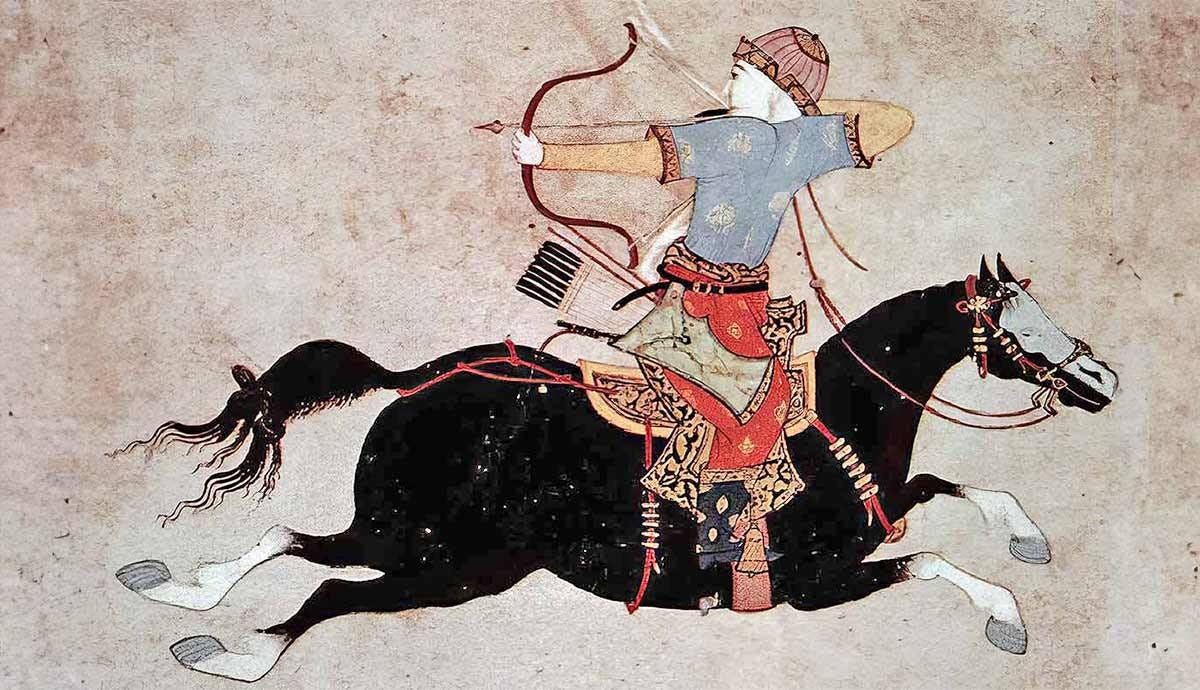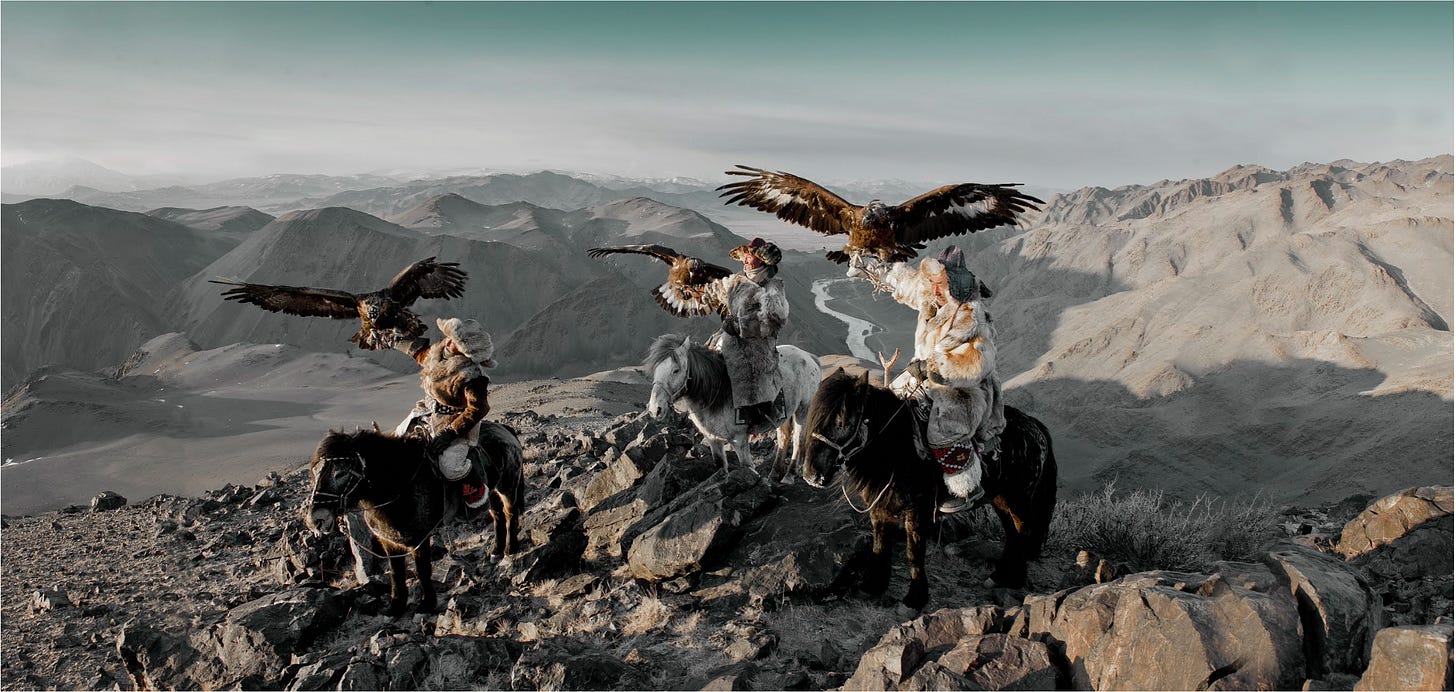Warrior Women on the Steppe!
In Hobbes’s state of nature, life is ‘solitary, poor, nasty, brutish, and short’, with ‘continual fear and danger of violent death’. He may well have been describing the Steppe - where nomadic pastoralists head out into the wilderness. Any night, one might be attacked by packs of wolves or violent raiders.
Despite clannish collectivism and perennial danger, Turkic and Mongol women could still gain status by virtue of their physical and intellectual prowess. This sharply contrasted with pre-modern Europe and the Middle East, where men monopolised almost all high status roles in government, commerce, religion, and literature. What explains this divergence? Let me suggest:
Initial culture persisted, until Turks and Mongols assimilated to patriarchal religions (Confucianism/ Islam).
Horses mitigated men’s greater strength, so women could thrive in men’s socially valued roles - as hunters and warriors.
When these steppe nomads were militarily victorious and conquered Muslim and Confucian societies, they adopted their patriarchal religions. Women lost status. Imperial expansion was thus to women’s disadvantage.







